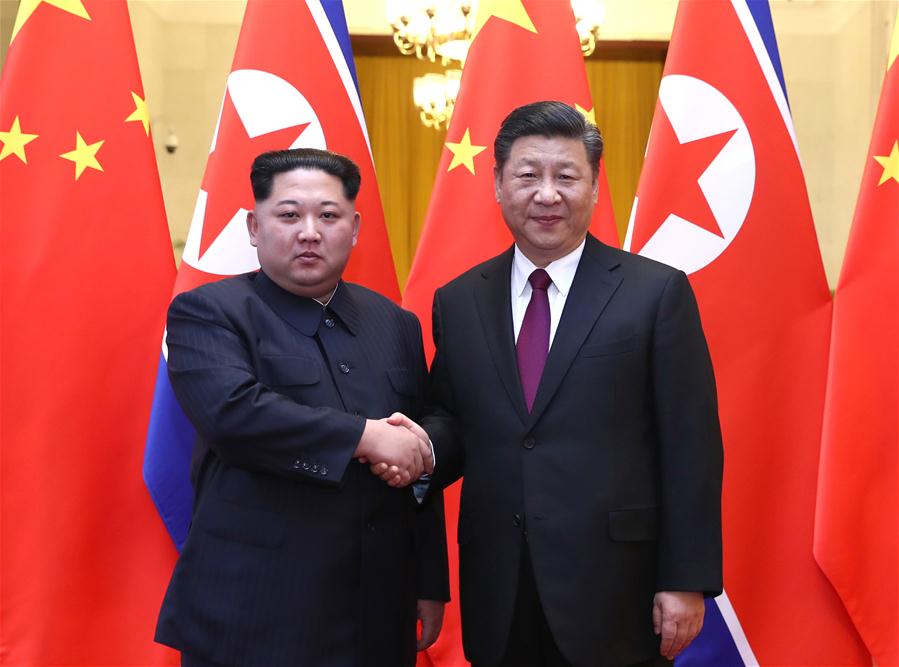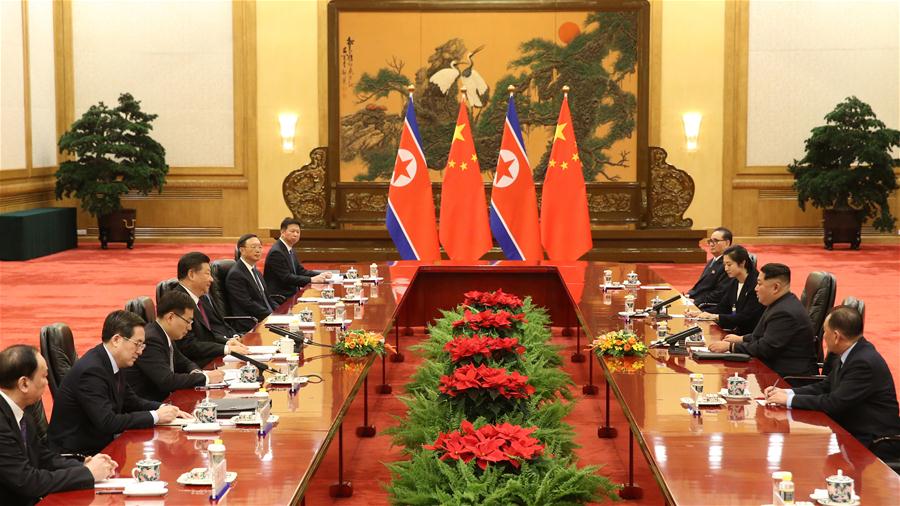Meeting facilitates denuclearization efforts
By Wang Junsheng | China Daily | Updated: 2018-03-29 07:30

The unofficial visit of Kim Jong-un, top leader of the Democratic People's Republic of Korea, to China to meet with President Xi Jinping before his planned meeting with US President Donald Trump in May is, needless to say, of very special significance. The efforts to strengthen China-DPRK traditional friendship have been highly anticipated, as the two neighbors share a 1,300-kilometer-long border and have proved to be a "community of shared destiny" through the Sino-Japan War (1894-1895) and the Korean War (1950-53) to the present times.
As two key players in Northeast Asian geopolitics, both want peace and stability on the Korean Peninsula.
On March 8, Trump told a Republic of Korea official that he was willing to meet with Kim, which, along with an anticipated Pyongyang-Seoul summit at the end of April, has eased the tensions on the Korean Peninsula, and could create more opportunities for the DPRK and the ROK, as well as other regional countries.
Given these developments, the need for a meeting between the leaders of China and the DPRK was immense, especially to strengthen high-level communication and work out a plan for the future.

The Xi-Kim meeting has occurred against the backdrop of Pyongyang's willingness to discuss its nuclear issue. China-DPRK ties have encountered some difficulties in the past few years, mainly due to their differences over the denuclearization issue.
But both China and the DPRK want peace and stability on the peninsula, and China has always maintained that the DPRK's reasonable security concerns should be properly addressed. Bilateral differences are related to only the methods for ensuring the security of the DPRK. Compared with the DPRK's stance that its nuclear program is to safeguard its national security, China takes into consideration other factors such as nuclear non-proliferation and peace and stability on the peninsula, and therefore it is opposed to Pyongyang continuing to develop nuclear weapons.
However, the fact is that nuclear weapons cannot guarantee the security of the DPRK. Instead, it will ensue more international pressure and a possible military strike by the US. Thus the DPRK has realized that denuclearization will improve its ties with China.
Considering their importance in regional affairs, stronger China-DPRK ties are not only in the interests of both countries, but also of great significance to the settlement of relevant issues.
China has long advocated direct talks between the leaders of the DPRK and the United States, and it will possibly make efforts to ensure such a meeting takes place.
The planned US-DPRK summit meeting will further ease tensions on the peninsula. Considering the lack of trust between Washington and Pyongyang and its importance to regional peace, how the two sides will reach an agreement and implement it needs China's participation.
The successful China-DPRK summit meeting and subsequent smooth communication between the two countries will increase the possibility of a successful US-DPRK meeting.
The denuclearization of the peninsula serves the common interests of regional stakeholders, including China and the US, and to realize denuclearization, all parties concerned have to hold consultations on an equal basis. The meeting between Xi and Kim will help the parties to handle the thorny issue in a more balanced manner, and thus facilitate joint efforts to promote the denuclearization process.
The Xi-Kim meeting also shows that China is still a key player in maintaining peace and stability on the peninsula.
The Xi-Kim meeting and the active efforts of China to resolve the peninsula nuclear issue will facilitate the planned US-DPRK summit meeting, not jeopardize it. In fact, the stance Kim has taken during his meeting with Xi-that the DPRK can realize denuclearization-will clear the path for his meeting with Trump.
Given that a nuclear-free DPRK is in the fundamental interests of all countries in the region, there is no need to fear China is sacrificing the peninsula's denuclearization goal for the sake of a stable China-DPRK relationship. The fundamental way for the DPRK to peacefully abandon its nuclear weapons program lies in relevant countries giving Pyongyang credible security guarantees. The Xi-Kim summit will help realize such a goal.
The author is an associate professor at the National Institute of International Strategy, the Chinese Academy of Social Sciences.
























